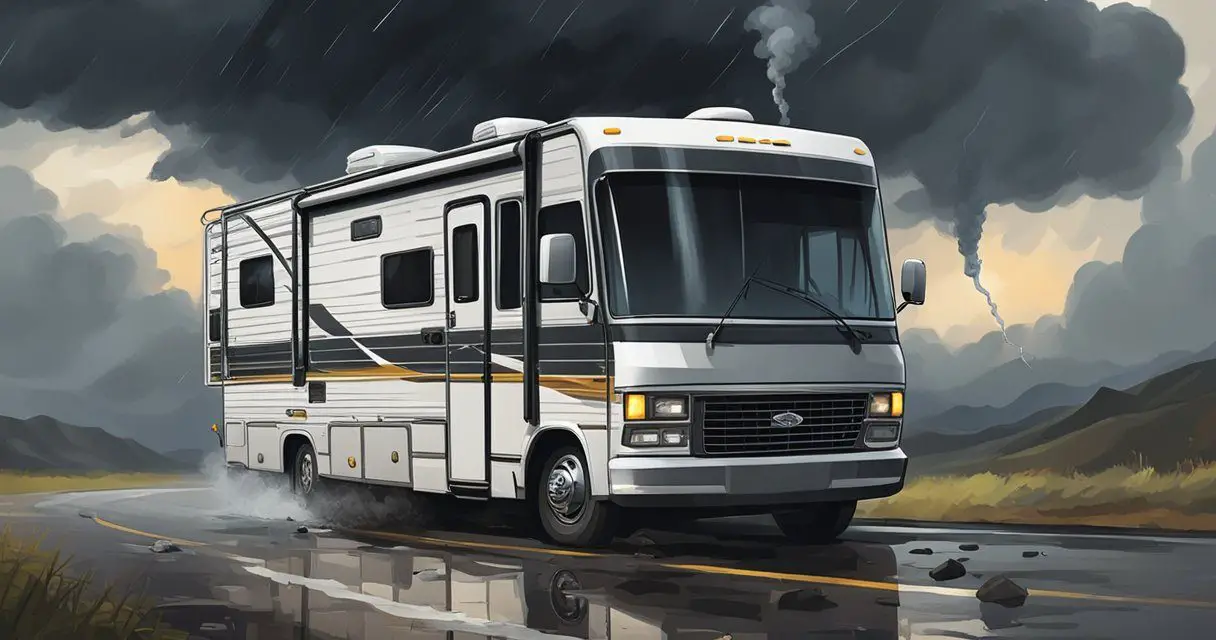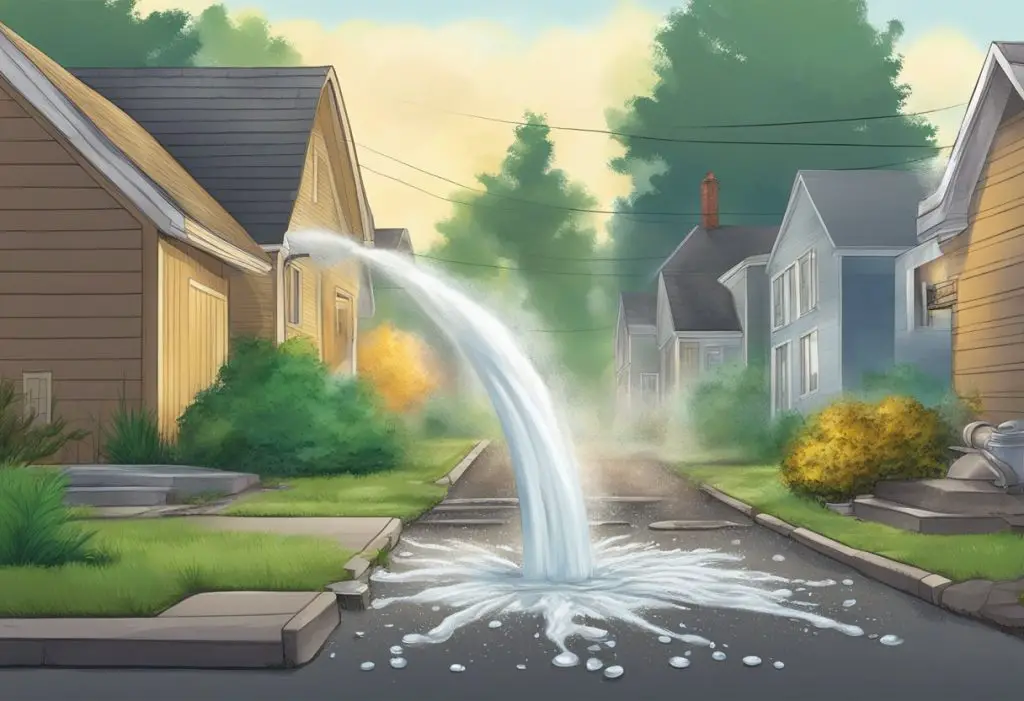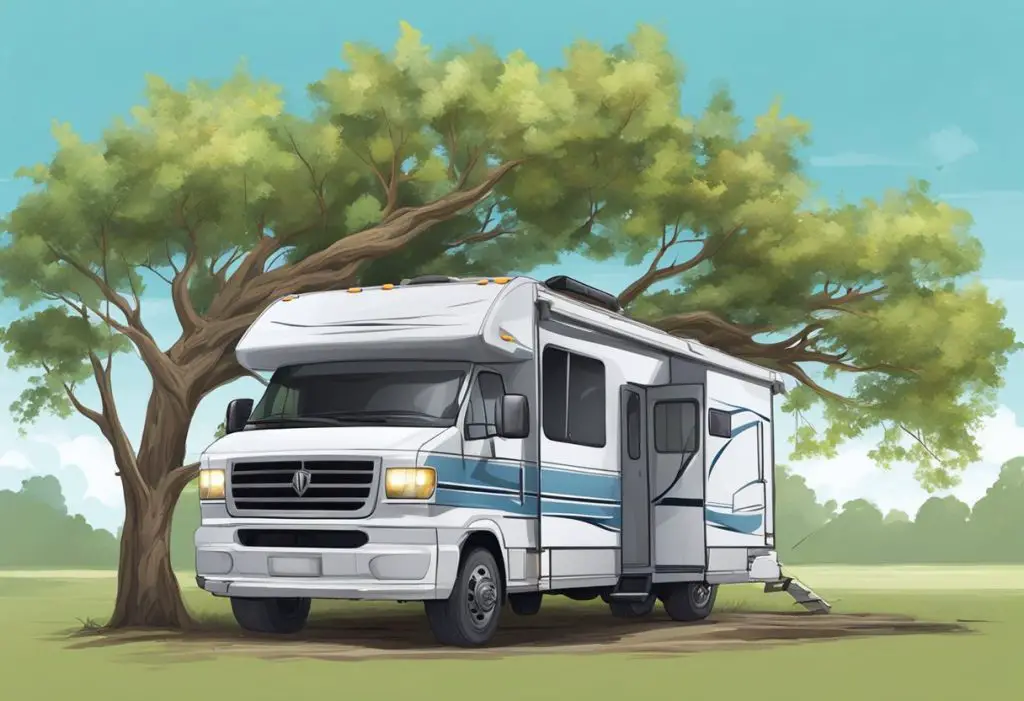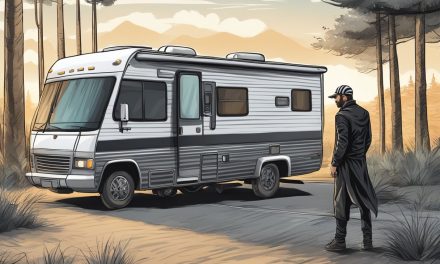Taking an RV trip can be a dream come true for adventure seekers and families alike. The open road offers countless opportunities for exploration and bonding. Embarking on this journey might come with unexpected challenges that could impact the overall experience.
Understanding common issues that arise during RV trips helps in planning and preparation. It also ensures a smoother and more enjoyable adventure.
1) Flat Tire on a Remote Road
A flat tire can easily disrupt an RV trip, especially when it happens on a remote road. The sudden loss of air can be alarming, but staying calm is crucial.
You should slowly maneuver yout RV to a safe spot. Keeping a firm grip on the wheel helps maintain control.
After stopping, activate hazard lights. This alerts other drivers and ensures additional safety.
Having a tire repair kit and a portable air compressor can be lifesavers. Even in remote areas, these tools can help get them back on the road quickly.
If self-repair isn’t possible, having a roadside assistance plan can provide peace of mind. Ensure plan covers RVs and remote locations.
2) Engine Overheating
Engine overheating is a prevalent issue among RV owners. When the engine gets too hot, it can lead to boiling coolant, which may overflow and leak from the cap or hoses.
Regularly checking coolant levels is essential. Ensure the overflow tank is filled to the “full” line. This simple step can prevent many overheating problems.
Watch for leaks. Low coolant levels often indicate a leak somewhere in the system. Identifying and fixing these leaks can save your engine from extensive damage.
Carry basic tools for DIY fixes. For persistent or severe issues, consult a professional to avoid long-term problems.
3) Running Out of Fresh Water
Running out of fresh water can quickly turn an enjoyable RV trip into a stressful experience. It’s crucial to monitor water levels regularly.
Travelers should always start with a full tank. Knowing the capacity of the fresh water tank helps plan for the duration of the trip and where to refill.
Plan refill stops along the route. Many campgrounds and RV parks offer freshwater stations. Keeping an eye on water usage ensures there are no unexpected dry spells.
4) Electrical System Malfunction
One of the most frustrating issues RV owners can face is an electrical system malfunction. This can range from faulty appliances to complete power failures, making it challenging to enjoy your trip.
Some common signs include appliances not working, flickering lights, and frequent tripping of circuit breakers.
Basic knowledge of your RV’s electrical setup can help in identifying and troubleshooting these issues.
Regular maintenance, like checking for loose connections and inspecting the wiring, can prevent many problems.
5) Awning Damage from Wind
Awning damage is a common issue for RV owners. Strong winds can wreak havoc on your awning, tearing the fabric or breaking the arms. Even a sudden wind gust can cause significant damage if the awning isn’t securely stowed.
Leaving an awning extended in windy conditions can lead to costly repairs. The force of the wind can slam the awning against the RV, damaging both the awning and the RV’s exterior.
Many RV owners use wind sensors, but they aren’t always reliable. It’s best to manually retract the awning if the wind picks up or if you leave the RV unattended. Proper handling and regular maintenance can help prevent these wind-related issues.
6) Sewer Hose Leaks
Would you like to save this article?
Sewer hose leaks can turn any RV adventure into a messy experience. Travelers often encounter this issue when connecting multiple hoses. Ensuring a tight connection is crucial.
A common cause is worn-out or improperly fitted hoses. Using Teflon tape around the fittings can help create a better seal. It’s an easy and effective fix.
Proper maintenance is vital. Regularly clean and inspect hoses for damage. Storing them in a dry, clean place can prolong their life. This prevents inconvenient leaks during the trip. Also, don’t underestimate damages that can result from mice…. these creature can also chew up hoses.
7) Propane Leak
Propane leaks in an RV pose serious risks. If anyone smells rotten eggs or hears hissing, these could be tell-tale signs of a propane leak. Immediate action is crucial.
Checking for leaks is simple. Using soapy water applied with a brush on propane lines. Bubbles indicate a leak. A propane leak detector offers additional safety.
Preventative maintenance is key. Inspecting and tightening fittings before trips ensures safety. Replacing old hoses and regulators also helps prevent leaks.
Knowing how to reset the excess flow valve can solve propane issues. Turning off all appliances, closing the service valve, and then reopening it might fix the problem.
8) Locked Out of RV
One frustrating problem that can ruin an RV trip is getting locked out. It happens more often than you might think. With all the excitement of traveling, it’s easy to misplace keys or accidentally lock them inside.
Some RVers recommend keeping a spare key in a magnetic box under the RV. This simple solution can save a lot of hassle.
Certain insurance providers, like AAA, offer lockout coverage. This service can be a lifesaver, covering the cost of a locksmith if you find yourself locked out. Additionally, it’s a good idea to always carry a phone with emergency numbers handy.
9) Roof Damage from Low Branches
Traveling through areas with low-hanging branches can wreak havoc on an RV roof. Tree branches may puncture or tear the roofing material, leaving the structure vulnerable to water damage.
Parking under trees also carries risks. Falling debris and branches can strike the roof, leading to possible leaks.
Inspecting the roof regularly helps spot and address minor damages quickly. Keeping the RV away from overhanging branches can greatly reduce the risk of roof damage.
10) Generator Failure
Generator failure can quickly disrupt an RV trip.
The most common reasons for generator issues include low fuel levels, dirty air filters, and dead batteries. Regular maintenance, such as checking and changing the oil, air filter, and fuel filter, can prevent many of these problems.
Battery issues are often the culprit if the generator won’t start. Ensuring the battery is charged and in good condition is crucial.
A lack of power output may signal a clogged fuel filter or a faulty voltage regulator. Inspecting these components can often find the problem.
Pay attention to unusual noises, which might indicate mechanical problems. Identifying and addressing these early can save a trip from turning into a disaster. Regular maintenance and quick attention to issues will keep the generator running smoothly.









